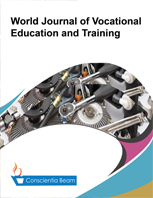Developing the potential of work-based learning: New challenges in Thailand's TVET system and the public-private partnership at Rajamangala University of Technology Lanna
DOI:
https://doi.org/10.18488/119.v7i1.4137Abstract
This study examines the role of work-based learning (WBL) in meeting the evolving demands of Industry 4.0 and digital transformation within Thailand's Technical and Vocational Education and Training (TVET) system. It assesses the current state of WBL implementation in Thai TVET and proposes models to enhance its effectiveness. Using a qualitative approach, the research focuses on two public-private partnership models at Rajamangala University of Technology Lanna (RMUTL): the school-in-factory (SiF) model and the Tripartite Education System. Insights were gathered through semi-structured interviews with five TVET experts, identifying key areas for WBL improvement. Despite increased recognition of WBL in Thailand, challenges remain, including limited industry engagement, inadequate infrastructure, and insufficient teacher training. The study emphasizes the need for stronger public-private partnerships, greater industry participation, and ongoing enhancement of WBL programs. The findings provide valuable insights for policymakers, educators, researchers, and industry leaders in Thailand and the ASEAN region. By advancing effective WBL models, such as the SiF model and the Tripartite Education System, Thailand can cultivate a skilled workforce essential for economic growth and innovation. Furthermore, the study highlights the importance of ongoing evaluation and improvement to ensure that WBL programs remain relevant and effective in the dynamic context of Industry 4.0.

